- Home
- Peter Grainger
In This Bright Future: A DC Smith Investigation Page 5
In This Bright Future: A DC Smith Investigation Read online
Page 5
‘I’ll be involved all day in meetings and visits to possible suppliers, and there will be some evening work, too, so I might be coming and going at odd hours, if that’s alright. You said that you will let me have a key, so when I’ve unpacked I’ll come down and we can sort out the money and so on. How does that sound?’
When she had departed, he sat on the bed, straightened his knee and then swung it up and around to rest it. So much for invisibility – the landlady now had a customer that she would be gossiping about for months, if she was a gossip at all. Still, the name had held up, and he had made sure that he would not need to go in search of further accommodation. Surely three nights would cover this – he might even have over-allowed there. Sometime tomorrow or the day after at the latest, Stuart Reilly would make himself known in this city after an absence of thirty years, and Stuart Reilly might be told to go to hell. If that happened, David Smith would go to Kings Lake instead and Christopher Colgate would leave Mrs Greene with enough spare cash to consider a down-payment on a funeral plan.
The knee ached, and so did his head. Too much travelling too soon after the operation. Smith closed his eyes briefly and went through it all again – Reilly, Smith, Colgate. He thought, sometimes I just don’t know who I am any more, and the irony that first amused him then became strange and a little sad. It was here in this very city, thirty years ago this week, that he had first felt that way.
There were sirens during the night. Each time, it seemed, they reached into the shallow sleep of a new bed in an unfamiliar room and drew him back to the surface, and then he lay awake and thought, well, some things don’t change. But then he told himself, these sirens will only be for the minor, individual tragedies of life – a drunken brawl maybe, a robbery, a car crash, a heart attack. There won’t any longer be hundreds of angry eyes glaring at each other across dark streets, there won’t be flying bricks or fire-bombs or gunfire or soldiers kicking down doors. After that he would drift off again, hearing only Smith’s voice in his head, Smith’s voice telling the other two just how stupid they were to be here at all, and that it could all be resolved by taking another taxi back to the Stena Line first thing in the morning.
Instead, after a healthy breakfast of grapefruit and cereal, he made his way, following Mrs Greene’s directions, to the main office of Translink. The landlady had, conversationally, kept a safe distance from her new guest but when she said, as a matter of professional politeness while she poured his cup of tea, that he must have a busy day ahead of him, he could not resist answering, ‘Yes, I’m off now to undertake my first meeting!’ She nodded, gave him a small, wary smile and took a couple of steps backwards before turning away and disappearing into the kitchen.
The young woman in the Translink office wore a smart, dark blue uniform that resembled those of the sturdy, no-nonsense girls who join the Royal Navy. Smith had to repeat his request for a one-week Wanderer ticket for the Greater Belfast area, and then he had to wait while she found the correct screen – his proposed purchase was plainly something of a novelty, one of those deals that are always being promoted on posters but never actually purchased by anyone, until today. Handing over the notes instead of the ubiquitous piece of plastic caused more problems, and she had to make a tactical retreat to a back office and open a cash box to find sufficient change. Finally he had to ask whether the bus company supplied a map of the routes covered by the Wanderer ticket – she had to get up again and go to the other service point where she eventually found one in a drawer. Smith gazed around while she did so, and noticed the CCTV camera looking down at him. Already his presence here in the city was a matter of record – and no doubt there had been cameras that he had not noted at the ferry terminal. It was something that he had considered before he left Kings Lake but some assumptions have to be made; it was surely a safe one that terrorists not far short of claiming their pensions would not have access to computerised facial recognition systems as well as public service security footage. In fact, the thought was so absurd that he smiled – as if any program yet written could have kept track of the changes time had wrought upon his visage. The girl behind the screen mistook the smile for friendliness and said that she hoped he would enjoy his stay and his travels around the city. The words were trite enough but the accent caught him unawares this time. Those rich, soft, beautifully contorted vowels… He thanked her and turned away towards the exit, the crutch tapping on the tiled floor.
The stick was annoying him. It was too clinical and impersonal, as well as being plainly third or fourth hand; if it had been cleaned since its last user leaned upon it, a poor job had been done. Yet he needed something – it did help to take some of the weight off his right knee. This was all a distraction – he knew that – but what of it? Why not treat this as a day or two away from Lake, a break from the job? No-one yet knew that he was here other than Serena Butler, and she knew no details. He could wander about here, contemplating old memories, peering in at them from the street as he might idly stare through the windows of gift shops, never in a million years intending to make a purchase.
He crossed the Falls Road and turned right until he reached a bus stop. The map and brochure were well laid out and easy to grasp; a short journey from here heading east would take him into the city centre. The wait was not even five minutes, but in that time he could see that Belfast, at least as far as weekday mornings were concerned, was much like any other city these days – insanely busy. Once on the bus, which itself was almost full, he could see the newness of things even here in the old city. He glanced to the left and a street name caught him unawares and turned him over inside – Townsend Street, go east then north around the right-angled bend, continue north and there, on the corner made with Cargill Street was, and might still be, the flat he had shared with Henry Lee and Patrick Walker from the university. The hours they had spent in the union bar. Good friends of his, once upon a time.
He got off the bus in Castle Street, which had not changed much at all. The pavements were crowded with shoppers, business people, students and none of them could see him – a small, ageing, nondescript Englishman with too many memories to comfortably carry about with him, still pretending to be something that he was not – an undertaker for goodness sake, Smith – in a city that should long ago have forgotten him and his kind. About the only thing he could change was the damned stick, and so, when he noticed the young policeman on the intersection with Queen Street, he approached him directly and explained the situation.
PSNI - The Police Service of Northern Ireland, that’s what the badge said, with its odd medley of symbols English and Irish. How many committee hours had been spent on that? Smith had looked for RUC but that, of course, was long gone, as, no doubt, were the members of it who had roughed up Stuart Reilly on more than one occasion. But this young officer was a model of politeness. He smiled down at Smith, glanced at the stick and said, ‘I quite understand, sir. And it so happens that I think we can help you. Carry on down here into Castle Place and look for the left into Castle Arcade. There’s a gentleman’s outfitters has a shelf of umbrellas and walking sticks.’
Smith thanked him and received the now obligatory ‘Is there anything else I can help you with, sir?’ It seemed the wrong moment to ask how active the IRA cells of the mid nineteen eighties still were, and so they parted company.
The Irish blackthorn walking cane with a beechwood handle and inlaid English silver ring made more of a dent in the cash he had brought with him than he had anticipated, but it was a fine thing nonetheless. Mr Edwards, the shop’s proprietor, had said that usually they would need to adjust the length a little, something that could take a few days, it being a natural material that required a craftsman’s touch, but this particular cane seemed to have been waiting for Smith to arrive – it was the perfect length for his needs, as Mr Edwards confirmed by asking him to parade up and down the shop several times. The ugly metal and plastic thing was already in a bin at the rear of the shop by the time Smith was back in Castle Place.
<
br /> Mrs Greene’s two cups of breakfast tea had taken him as far as they were able, and now he needed some proper caffeine. He continued his progress towards the city centre, avoiding the franchised outlets – there had to be a logical connection between the offer of free wi-fi and the sale of over-priced, inadequate coffee – eventually arriving at a small street market along the narrow alleyway known as Joys Entry. What a pity Waters wasn’t here to enjoy Smith’s speculation about such a wonderful name…
As he had hoped, there was a small café tucked away to the side of the market. It was called Lorraine’s. The cane had somehow made him feel rather jaunty and he walked in with a smile at the lady behind the counter, surprised at how many stallholders were already seated at the handful of tables.
He said, ‘Good morning. Is Lorraine here?’
‘She is.’
The woman returned his smile, identifying herself at the same time.
‘Oh, good. May I ask whether you have a free wi-fi connection?’
‘I’m sorry but we don’t. If you go round to-’
‘No. That’s excellent. One cup of black coffee, please. I see you don’t have any fancy names for it up there on the board.’
‘It’s just coffee, sir, freshly brewed.’
‘What a relief.’
The woman was already arranging a cup on a saucer beneath the machine. She half-turned to him, still smiling and said, ‘How about a muffin to go with that, sir?’
‘Muffin’ isn’t a word that is often spoken suggestively but somehow she had achieved it; Smith could only conclude that the blackthorn walking cane had given him that indefinable something and wished that he had bought one years ago.
‘I do not normally indulge this early in the morning but they do look delicious.’
They both stared at the heap of buns on a tray between them.
Lorraine said wistfully, ‘I can’t resist the blueberry ones…’
‘Blueberry it is, then.’
He sat by the window at a tiny table for two that had just become vacant, and watched the life of the market. Since Sheila died he had not been on holiday, other than up to the caravan at Pinewoods. This was what it was like. One could wander about and meet people; one could make spur-of-the-moment purchases of expensive walking sticks; one could visit museums and galleries and go to concerts and gigs – the things that they had once done together one could still do alone. He should do it – Paris, Amsterdam, Rome…
Lorraine brought the coffee and the muffin. After she had put them down, she stood for a moment by the table, and he looked up at her. She might or might not be forty. A plain face but honest and lively – no wedding ring.
She said, ‘You here for business or pleasure, sir?’
‘Oh, mainly for pleasure, I think.’
‘And is it your first visit to Belfast?’
‘No. I was here many years ago.’
She nodded as if she understood something more from that answer than he had intended.
‘Changed, hasn’t it? If you grew up here, this is like a miracle now. The whole place is humming, day and night.’
‘The peace dividend.’
‘Aye, it is, it’s paid off alright. But if we’d given way, given in to it, you know what I mean, then this would not have happened. It had to be fought for, and one day it’ll have to be fought for again. People forget too quickly.’
When he was silent, she coloured a little and said, ‘Sorry, I didn’t mean to preach – very bad for business!’
‘No, not at all. I agree with you. Enjoy any peace you can get while it lasts.’
She went back to the counter where there were already customers waiting, and Smith thought, she’s a Protestant, happy to say those things to me because I’m English. And she is right. Only last week, arrests in Coleraine, a cache of arms and bomb-making equipment. It isn’t over. The fault lines go deep into the earth beneath this island.
But the coffee was good, as honest and lively as the woman who was making it. After a few minutes she came back to the table and asked if he would like a second go, and he said yes. And when, after almost half an hour he left the busy little establishment, she said to him as he passed the counter, ‘Come again while you’re here. We have all sorts of muffins!’
Outside he wiped his metaphorical brow and shook his head a little. He had thought that the old city might still pose a risk or two for him but he had not thought it would be as dangerous as this. Then he continued east along Ann Street until he had crossed over Oxford Street, where he turned south to walk along the riverside. The knee was stiff rather than painful, and the exercise didn’t seem to be doing it any harm. Eventually he found a bench in the Waterfront park, just a few yards from the water’s edge, and sat down to watch the Lagan flow steadily by.
If he remembered his geography properly, and he usually did, this was now Protestant country. The training had involved memorising the political and religious districts of the city, if only because saying the wrong thing in the wrong place could lead to yet another flashpoint – the last thing that undercover intelligence officers should be creating. Simply crossing a road could take you from an area in which the Catholics made up ninety per cent of the population to one in which they barely made five. Lives depended on not forgetting such things. Not two miles from this bench they had found the body of Tim Marshall, Sergeant Tim Marshall of 14 Unit. He had been tortured, murdered and branded as a warning to all touts, all informers; Smith had known him well and had been asked to make the second identification of what remained of the man. Apparently Marshall had said something in a bar that aroused some suspicion, and that was enough in those days.
The river Lagan, with its faint scent of being closer to the sea than one might imagine, reminded Smith of Kings Lake, and he felt an unexpected twinge of homesickness. Paris, Amsterdam and Rome? He couldn’t even manage a day in Belfast! But it wasn’t simply the otherness of the place, of course; it was what lay behind him here, both in time and more literally in the west of the city.
This was the moment of decision, as he had known it would be for the past two hours, despite the diversions he had found. He could continue going east away from it, continue along the waterfront for a while and then catch a bus to the ferry terminal. Everything that he needed was in his wallet or jacket pockets except for Christopher Colgate’s passport, and that was not strictly necessary to get back home as he had with him David Smith’s photo driving licence. He had been one of the passengers whose ID was scanned on the way out, and he had used the passport, but it had been cursory enough not to cause any hold-up in the queue to board. The travel bag, a few clothes, the passport – he didn’t need to go back to Mrs Greene’s for those. He could go home right now.
And quiet flows the Lagan. Rivers are remarkable things. They can be diverted and made to do our will for a brief while, but they cannot be stopped, however high one builds the dam. In the end, the stream will overtop the wall unless it is allowed its way on to the sea.
Smith watched the Lagan for a few more minutes and then he took out his phone and the card, and dialled the number.
Chapter Five
Thirty minutes, Diarmuid Kelly had said, and so Smith stayed on the bench overlooking the river – it seemed as good a place as any.
The girl who had answered the phone told at first that Diarmuid wouldn’t take any calls at all, not while he was coding, and Smith had not pushed the point; he had said simply that if she could let her boss know that it was David Smith, he might want to call him back.
‘My boss? That’ll be the day!’ she had said, and then, ‘Are you the man he came to see in England just now?’ Yes, Smith had said, and she seemed relieved somehow that such a person existed after all, and told him to hold on the line for a moment.
It had been Kelly himself then, surprised to be called and then astonished at the answer to his question ‘Where exactly are you calling from?’
‘I’m on a bench overlooking the river, in the Waterfron
t park.’
‘You’ve come to Belfast? You’re joking me. Are you serious?’
‘Never more so.’
‘Give me thirty minutes.’
Smith spent all of them preparing to answer the next, inevitable question – why?
It was closer to forty minutes before he saw the figure coming purposefully across the grass towards him – some sort of rugby shirt, jeans and trainers, that’s what the creative computer types wear for work these days. On his face Kelly had the same fixed look that Smith had seen in his lounge, and so he stood up to meet him eye to eye.
Kelly said, ‘What is it? You’ve remembered something? You knew something after all?’
‘No.’
One of those occasions when a small lie is kinder than a great truth, perhaps, but the reality was that there was no great truth; Tommy Blake’s words to Stuart Reilly that night thirty years ago might or might not have some bearing on the disaster that had befallen the O’Neill family but for now it was safer for all concerned that they were not repeated. Diarmuid Kelly stared at Smith with undisguised puzzlement.
‘Then what in God’s name are you doing here?’
Smith pointed at the bench and said, ‘We might as well sit down.’
They did so, at either end, both facing the river. Without consciously making the decision, Smith looked around to see if anyone was watching, found himself doing that and shook his head a little at his own foolishness.
Kelly said, ‘I’ll ask again – what in God’s name are you doing here then? It’s not a social call is it, looking up old friends?’
His accent was stronger here in his home city, and the irony in what he was saying was intentionally undisguised. Their eyes locked for a moment, and it was Smith who looked away first, across the river.
‘I don’t have any privileged knowledge about what happened to Brann. If I did, I could and probably would have shared that with you a couple of days ago, and that would be the end of it. I suppose I’m here because I couldn’t give you that – I wondered if I could offer you something else instead, which is my help. And yes, I’m aware that it’s unlikely I have any old friends here.’

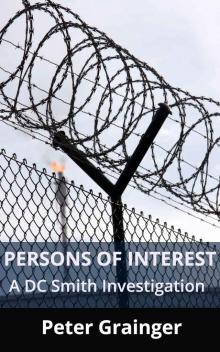 Persons of Interest
Persons of Interest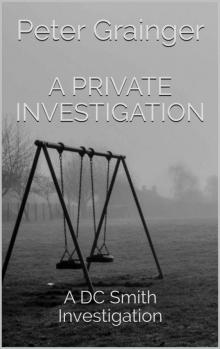 A Private Investigation
A Private Investigation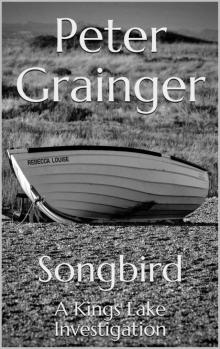 Songbird
Songbird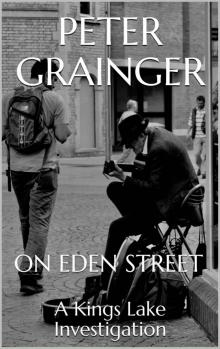 On Eden Street
On Eden Street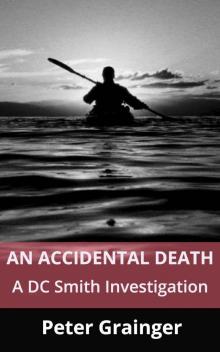 An Accidental Death
An Accidental Death Time and Tide
Time and Tide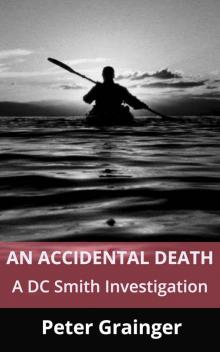 An Accidental Death: A DC Smith Investigation
An Accidental Death: A DC Smith Investigation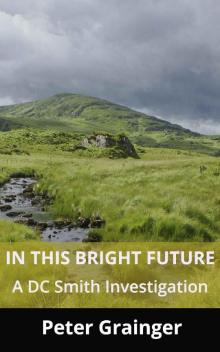 In This Bright Future
In This Bright Future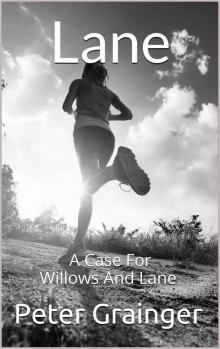 Lane: A Case For Willows And Lane
Lane: A Case For Willows And Lane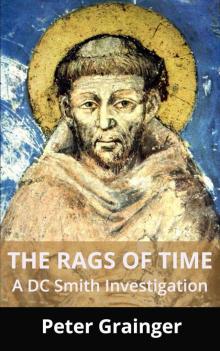 The Rags of Time: A DC Smith Investigation
The Rags of Time: A DC Smith Investigation Luck and Judgement
Luck and Judgement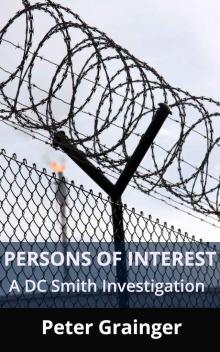 Persons of Interest: A DC Smith Investigation
Persons of Interest: A DC Smith Investigation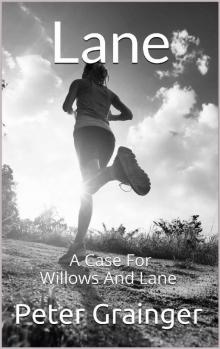 Lane
Lane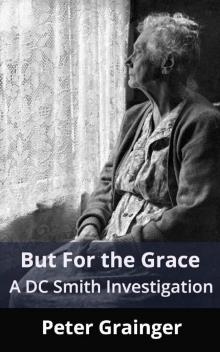 But For The Grace
But For The Grace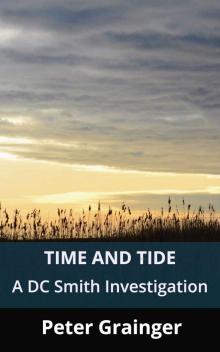 Time and Tide: A DC Smith Investigation
Time and Tide: A DC Smith Investigation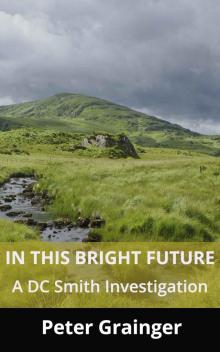 In This Bright Future: A DC Smith Investigation
In This Bright Future: A DC Smith Investigation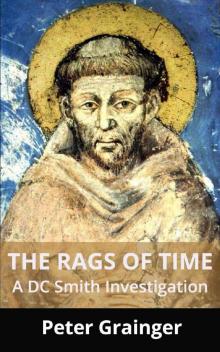 The Rags of Time
The Rags of Time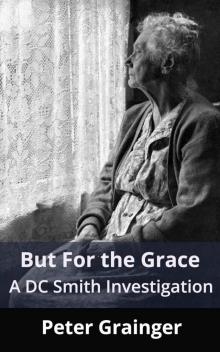 But For The Grace: A DC Smith Investigation
But For The Grace: A DC Smith Investigation Luck and Judgement: A DC Smith Investigation
Luck and Judgement: A DC Smith Investigation